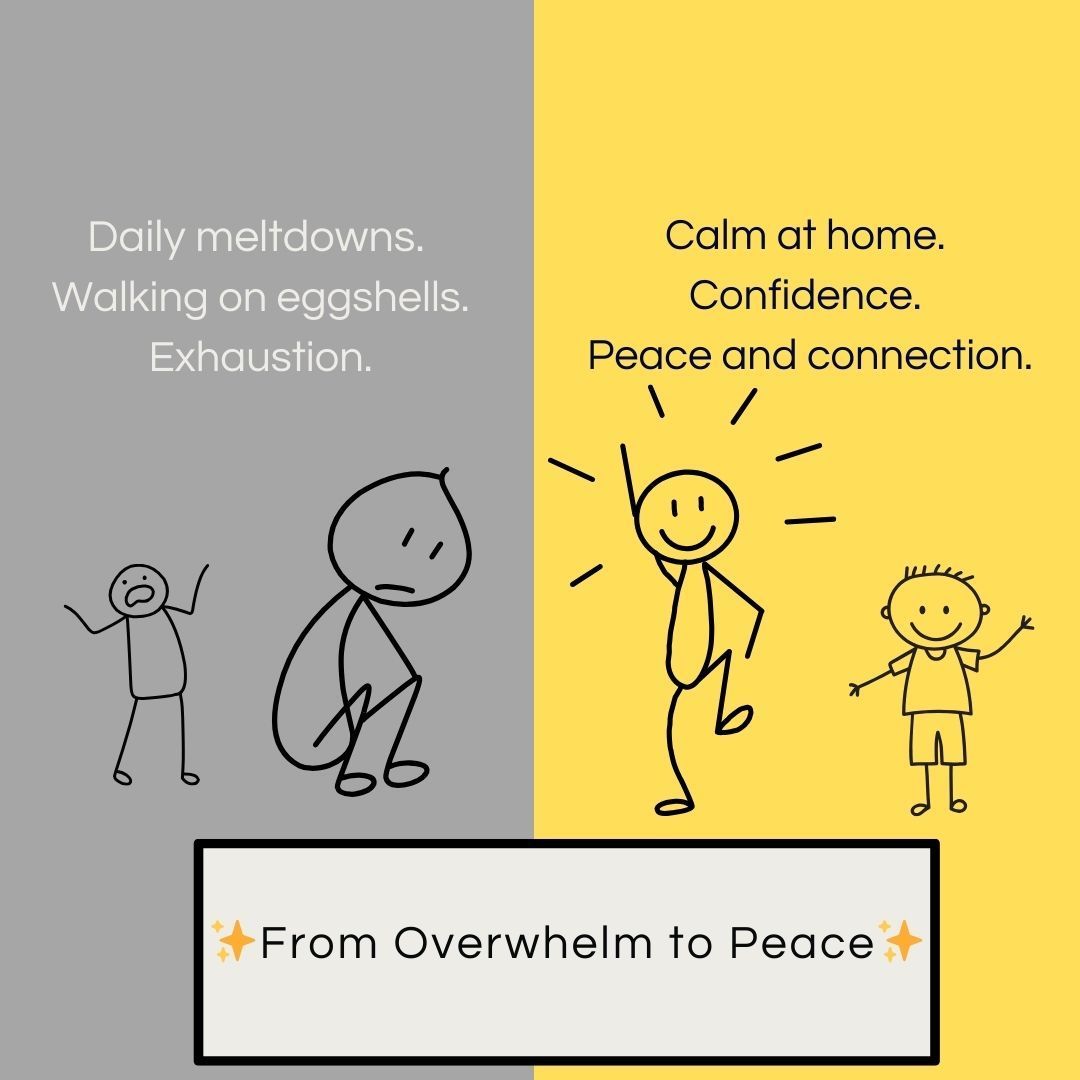Morning Routines That Actually Work for Kids with ADHD and High Sensitivity
Ceara Deno, MD • December 3, 2024
Schedule A Free Call
Morning Routines That Actually Work for Kids with ADHD and High Sensitivity

Getting out the door in the morning tends to be hard for many families.
But for parents of kids with ADHD or highly sensitive kids, mornings can extra challenging.
Children with these traits often face unique challenges like difficulty transitioning, sensory sensitivities, power struggles, or difficulties with focus.
A thoughtful morning routine can set the stage for a smoother day—and help everyone feel calmer and more connected.
Here are some practical tips to design a morning routine that works for your family:
1. Start with Connection, Not Correction
Highly sensitive and ADHD kids thrive on positive connection. Begin the day with a moment of warmth—a snuggle, a shared joke, or simply a cheerful "Good morning!" Avoid diving into instructions right away, as this can feel overwhelming and trigger resistance.
2. Break It Down into Steps
Kids with ADHD often struggle with multi-step tasks, and highly sensitive kids can easily become overwhelmed by the morning rush. Create a simple, visual checklist with pictures or words. For example:
Get dressed.
Brush teeth.
Eat breakfast.
Grab backpack.
This not only helps your child stay on track but also gives them a sense of accomplishment as they check off each task.
3. Plan for Sensory Needs
Highly sensitive kids may feel overstimulated by bright lights, loud alarms, or scratchy clothing, while kids with ADHD may crave sensory input to stay focused. Consider adjustments like:
Using a gentle alarm clock or soothing wake-up music.
Preparing comfortable, tag-free clothing the night before.
Offering a fidget toy or chewable necklace during breakfast to help with focus.
4. Build in Extra Time for Flexibility
ADHD and highly sensitive kids often need more time to transition between activities. Start the routine earlier to avoid the stress of rushing. If possible, include a buffer for unexpected challenges, like needing to find that one favorite pair of socks.
5. Use Playfulness to Motivate
Instead of battling over tasks, make them fun. Use playful language or turn chores into a game. For instance:
Pretend you’re racing the clock to “beat the breakfast timer.”
Sing silly songs while getting dressed.
Create a morning mascot (like a stuffed animal) that “cheers” your child through the routine.
6. Provide Choices to Avoid Power Struggles
Highly sensitive and ADHD kids often feel more cooperative when they have some control. Offer simple choices:
“Would you like toast or cereal?”
“Do you want to brush your teeth first or get dressed first?”
These small decisions can help your child feel empowered, and help them be more cooperative.
7. End with a Positive Send-Off
Before heading out the door, take a moment to connect with and appreciate your child. A quick hug, high-five, or encouraging words like, “I’m so proud of how you got ready today,” can set a positive tone for the rest of their day.
Bonus Tips for Parents
Prep the Night Before: Lay out clothes, pack lunches, and organize backpacks in advance to reduce decision-making in the morning. Younger kids can sleep in their clothes to save time and avoid power struggles.
Keep Expectations Realistic: Progress is better than perfection. Celebrate small wins and adjust as needed.
Take a moment to connect with your child during the rush of the morning; kids are often more cooperative and able to focus better after moments of connection.
Practice Self-Care: Your energy sets the tone. A few deep breaths or a quick coffee moment can help you stay calm and present.
Creating a morning routine that works for ADHD and highly sensitive kids takes trial and error, but with patience and creativity, you can design a system that helps everyone start the day with a little more ease—and a lot more connection.

Have you ever noticed how something as simple as leaving the playground, turning off a tablet, or getting ready for school can spark big resistance—or even a meltdown? For many children, especially those who are highly sensitive or deeply feeling, transitions are some of the hardest moments of the day. It’s not because they’re being “difficult”—it’s because their brains and nervous systems experience change differently. The good news: once you understand why transitions are so challenging, you can respond with empathy and tools that make them easier. Here are 5 common reasons transitions are tough for your child—and what you can do to help. 1. They’re Deeply Engaged in the Moment Highly sensitive kids often immerse themselves fully in what they’re doing—whether that’s reading, building, or playing. Being asked to stop feels like being pulled out of a world they love. How to help: Give gentle warnings before the change. Try: “Five more minutes of play, then it’s time for dinner.” Using a timer or visual countdown can help them prepare. 2. Their Brains Need More Time to Shift Gears Transitions require mental flexibility, which can be harder for sensitive nervous systems. Switching from one activity to another i s like changing lanes on a crowded highway—it takes time. How to help: Use consistent signals to cue transitions, such as a special song, a picture schedule, or a fun countdown routine. 3. Transitions Can Feel Like a Loss of Control Children often feel like transitions are imposed on them. That lack of control can trigger pushback or power struggles. How to help: Offer simple choices so they feel empowered. For example: “Do you want to brush teeth first or change into pajamas first?” 4. They Anticipate Stress in the Next Activity If your child expects the next step to be boring, stressful, or less enjoyable, they may resist leaving the current activity. How to help: Empathize first: “It’s hard to stop playing, I know.” Then, ease the shift with something to look forward to: “Want to bring your toy to the car so it feels easier?” 5. Their Nervous Systems Feel Every Shift More Intensely Highly sensitive kids notice and react to even small changes in environment, energy, and routine. What feels like a tiny shift to you may feel overwhelming to them. How to help: Keep routines predictable when possible. Create comforting rituals—like a goodbye hug, a special handshake, or a silly phrase—that help anchor them during transitions. The Takeaway Transitions are about more than just moving from one activity to another—they involve emotions, expectations, and a sensitive nervous system. With empathy and small adjustments, you can turn transition battles into moments of connection. 💛 Parenting a highly sensitive child isn’t easy—but it’s also filled with opportunities to build trust, closeness, and resilience. If you’d like more guidance on making daily challenges like transitions smoother, I’d love to support you. I offer one-on-one parent coaching tailored to families raising deeply feeling kids. Schedule a free call with me here.











